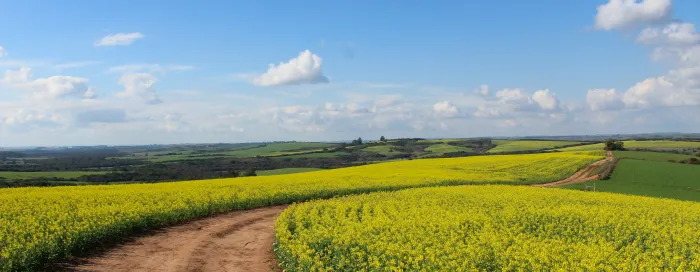The war in Ukraine has brought food security and the agricultural sector back to the heart of the European debate. The surge in energy prices, fertilisers and raw materials is placing many European farms in serious difficulty. An average cost increase of EUR 15 000, as estimated by the Council for Agricultural Research and Economics (CREA), would lead to a negative income for 30% of Italian farms.
In the wake of the crisis caused by the pandemic, the conflict in Ukraine is putting a strain on the agricultural sector's economic recovery and green transition. Opponents of the European farm to fork strategy have wasted no time in using the war as a pretext to weaken it.
However, we cannot afford to backtrack in the fight against the climate crisis, not even in the face of war. As rapporteur at the European Committee of the Regions and representing local and regional authorities across Europe, I emphasise the importance of investing in a green transition accompanied by appropriate short-, medium- and long-term measures.
In the short term, our farmers and rural areas need more EU support. It is thanks to the commendable work of farms and the agri-food sector that we have been able to ensure food supply security during the pandemic. This work is needed now more than ever given the cutting-off of imports from Ukraine and Russia. The temporary State aid measures adopted by the European Commission in March to grant up to EUR 35 000 to companies affected by the crisis in the agricultural, fisheries and aquaculture sectors are therefore welcome.
In the medium term, State aid rules should become more flexible and simple. In the context of the EC's new proposals for State aid in agriculture which will be implemented in 2023, I propose, for example, that Member States should not be obliged to send the Commission annual reports concerning events that are comparable to natural disasters. If national authorities recognise disasters as such, there is no need for further bureaucracy. Additionally, I advise not requiring Member States to publish information on individual beneficiaries of aid under EUR 75 000 for agricultural production, and under EUR 500 000 for agricultural product processing and marketing.
The concept of small and medium-sized enterprises should therefore be redefined, creating a new definition for micro-enterprises for the agricultural sector. These farms are the best suited to achieve the green transition, as they are able to strengthen agro-ecological practices. However, in order to do so, they need help, and this is why I propose simplifying State aid rules for their benefit, given that micro-enterprises are too small to destabilise the single market.
In the long term, the common agricultural policy (CAP) needs to be simplified and truly decentralised, and will also be revised in light of greater European strategic autonomy. The CAP national strategic plans should have features that increase production capacity.
Reaching zero greenhouse gas emissions by 2050 must remain our main goal in the agricultural sector, too, and the CAP must adapt to the European Green Deal objectives. It is imperative to support farms in the green transition, especially micro- and smaller enterprises, to safeguard and protect the countryside. Other important measures concern the development of sustainable farming, the promotion of short chains and local food systems, as well as mirror clauses for trade and reciprocal standards. Developing more sustainable agriculture will also enable us to reduce our dependence on fertilisers and fossil fuels, hence the need to continue down the Farm to Fork path.
Lastly, I would like to emphasise the extraordinary work of small Ukrainian farmers. Until now largely overlooked in favour of large agri-food companies, today it is they who are maintaining the food supply in a country at war.
We must not make the same mistake again. Agriculture has always been a fundamental pillar of European integration. In the same spirit shown by its founding fathers, the European Union must equip itself with the means to support and help micro-enterprises and SMEs in the transition, as they are and will be essential for creating a more sustainable, healthy and safe food system.
Guido Milana is member of the PES Group and Rapporteur for the European Committee of the Regions (CoR) opinion on Future EU state aid in the agricultural and forestry sectors and in rural areas of 28 April 2022. Guido Milana was also the CoR rapporteur on the European farm to fork strategy. He has been a member of the Committee since 2016, and is the current vice-president of the Italian delegation. Mr Milana is a member of the Olevano Romano (Lazio) Municipal Council, and was a member of the European Parliament from 2009 to 2014.
***
This article was originally published in Italian by L'informatore agrario num 19/2022.
Photo credits: Raquel Pedrotti on Unsplash.
